Idea by
Martin Kolev
Call for ideas 2021
The Zone of Disassembly
The Zone of Disassembly
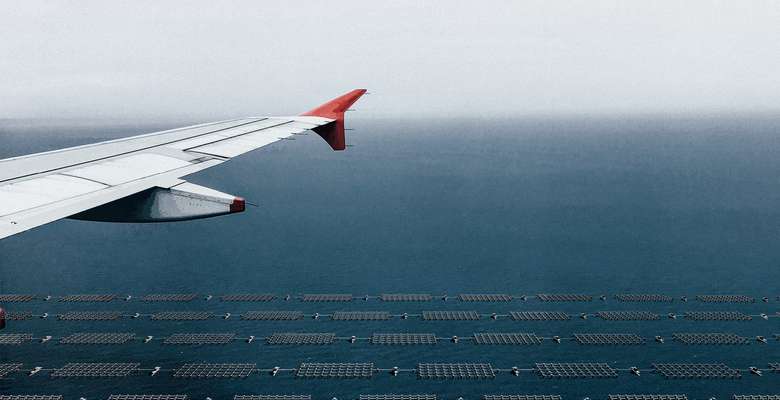
- Systemic changes
This project is a critique toward the current policies regarding e-waste: incompetent formulation of recycling practises and lack of contemporary methodology results in the conscious exclusion of these so-called ore-streams results in huge economic and natural loses. It derives from the question of territory and formulates a spatial intervention which unveils the North Sea hidden e-flows. It is articulated via two agencies which establish an infrastructural threshold: the archipelago and the plant.
The waste archipelago resembles an artificial set of islands navigates between the territorial waste and material flows. It defines a flexible framework based on multipliable spatial syntax. Meanwhile, the plant manifests the territorial intervention by emphasising the physical metamorphosis of waste into matter. While the switch establishes a vital node handling the global streams of electronic dumping, the plant resembles a medium between global-local, human-machine, manual-automated.
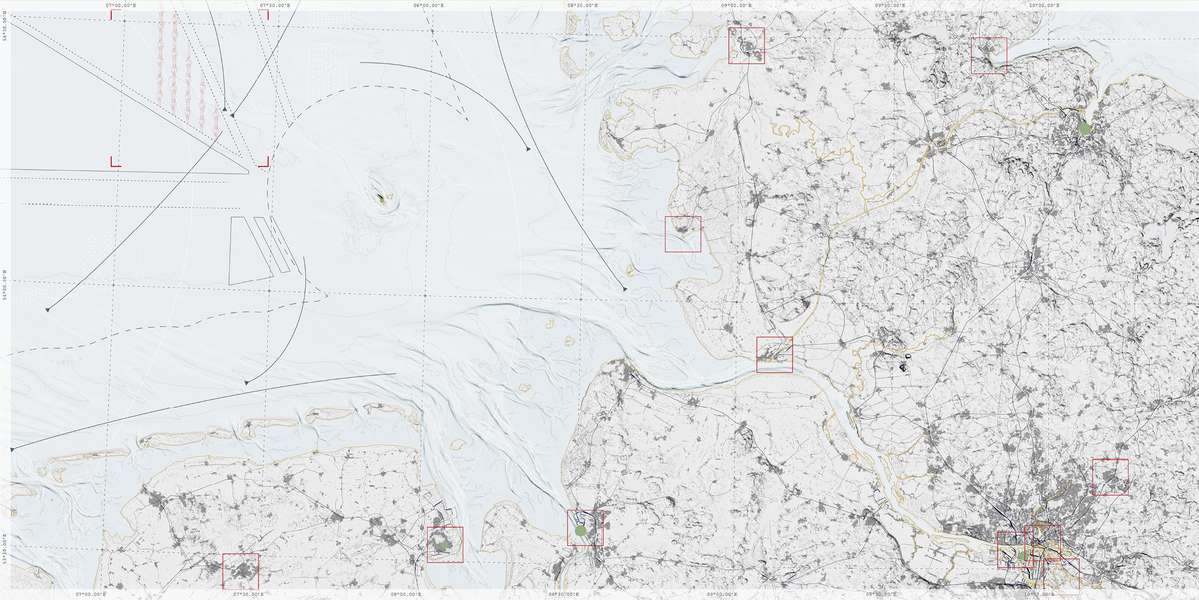
Occupation.Expansion.Densification. NS_German Bight Map
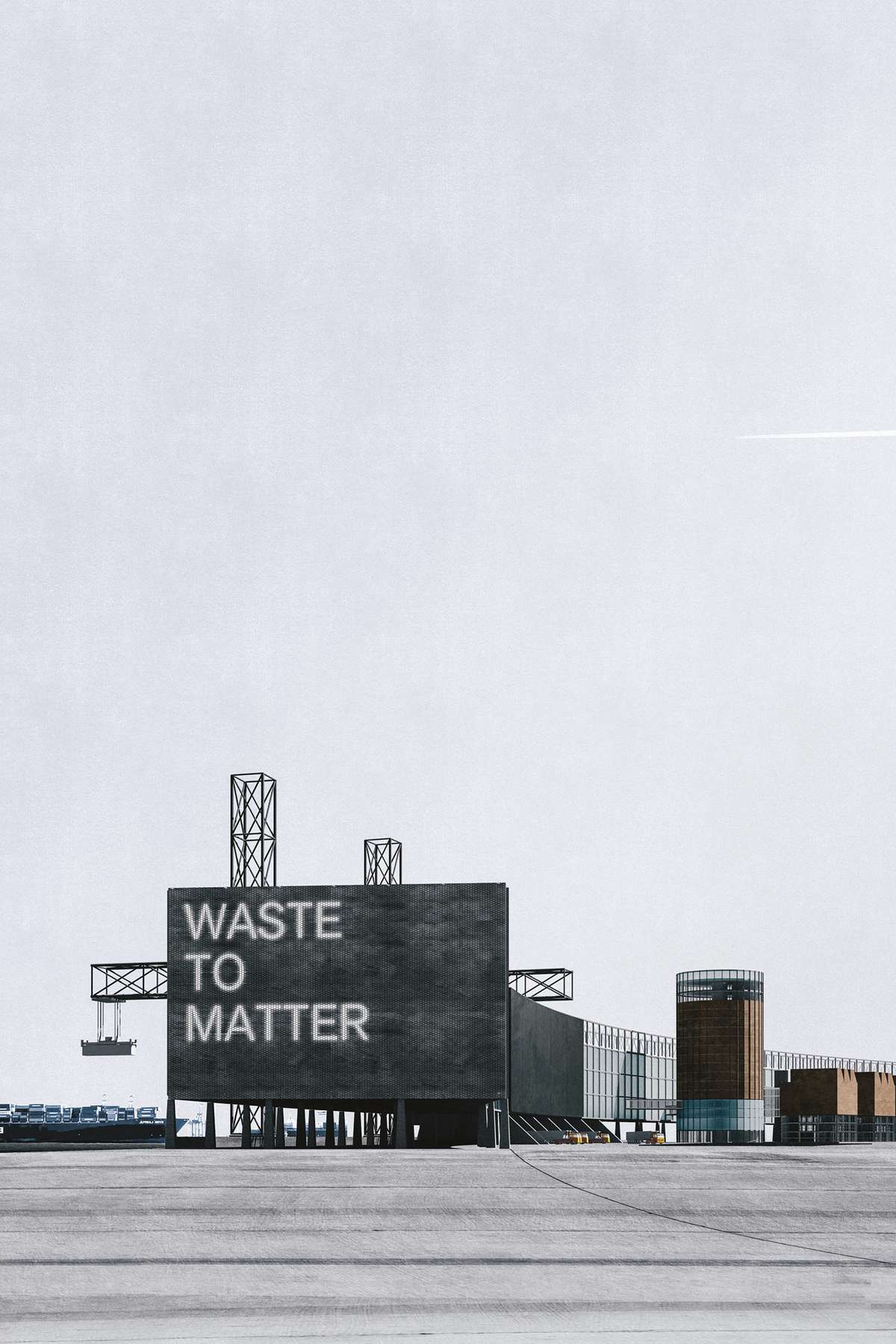
W2M. (e)Waste-plant
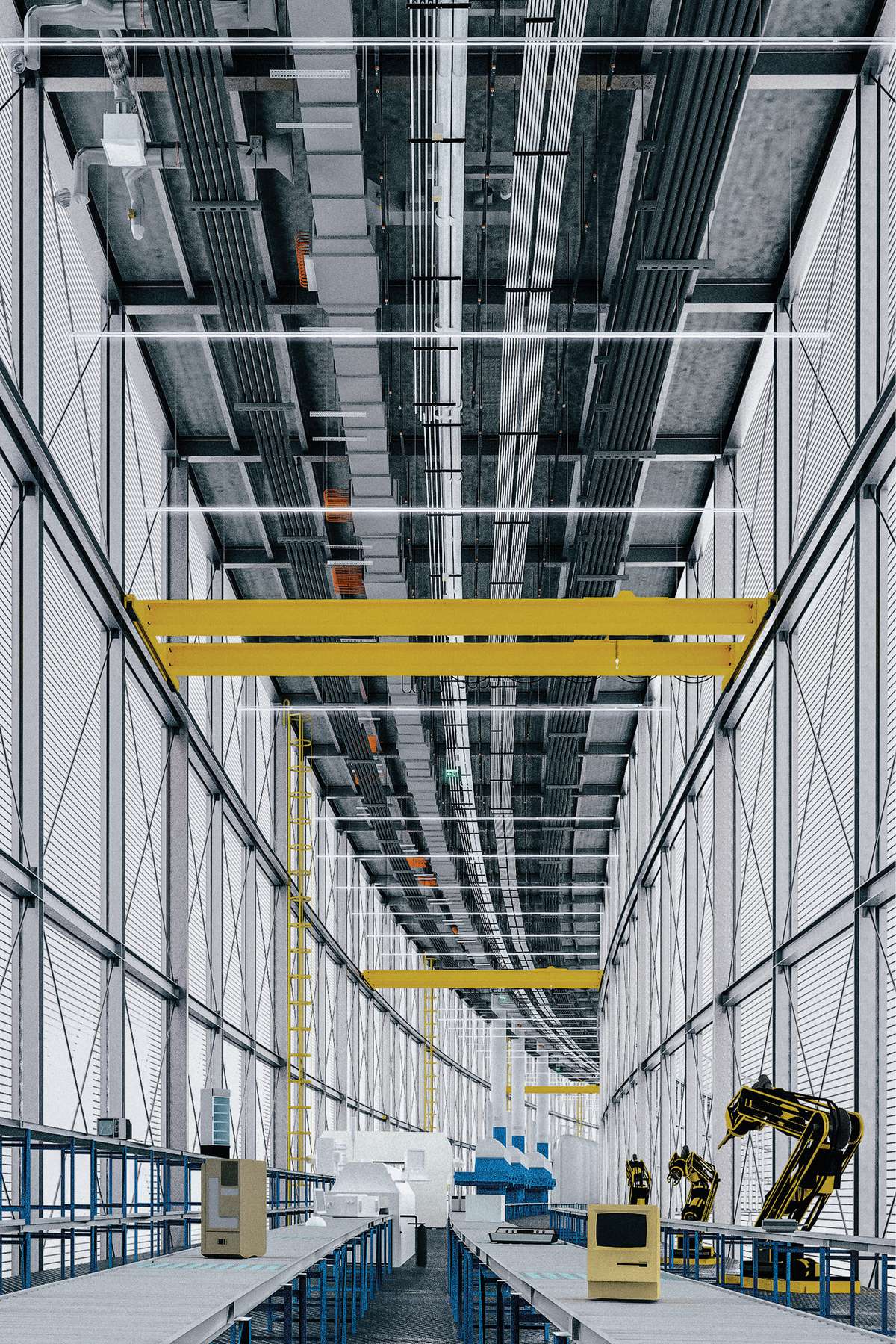
Automated Disassembly. Interior View
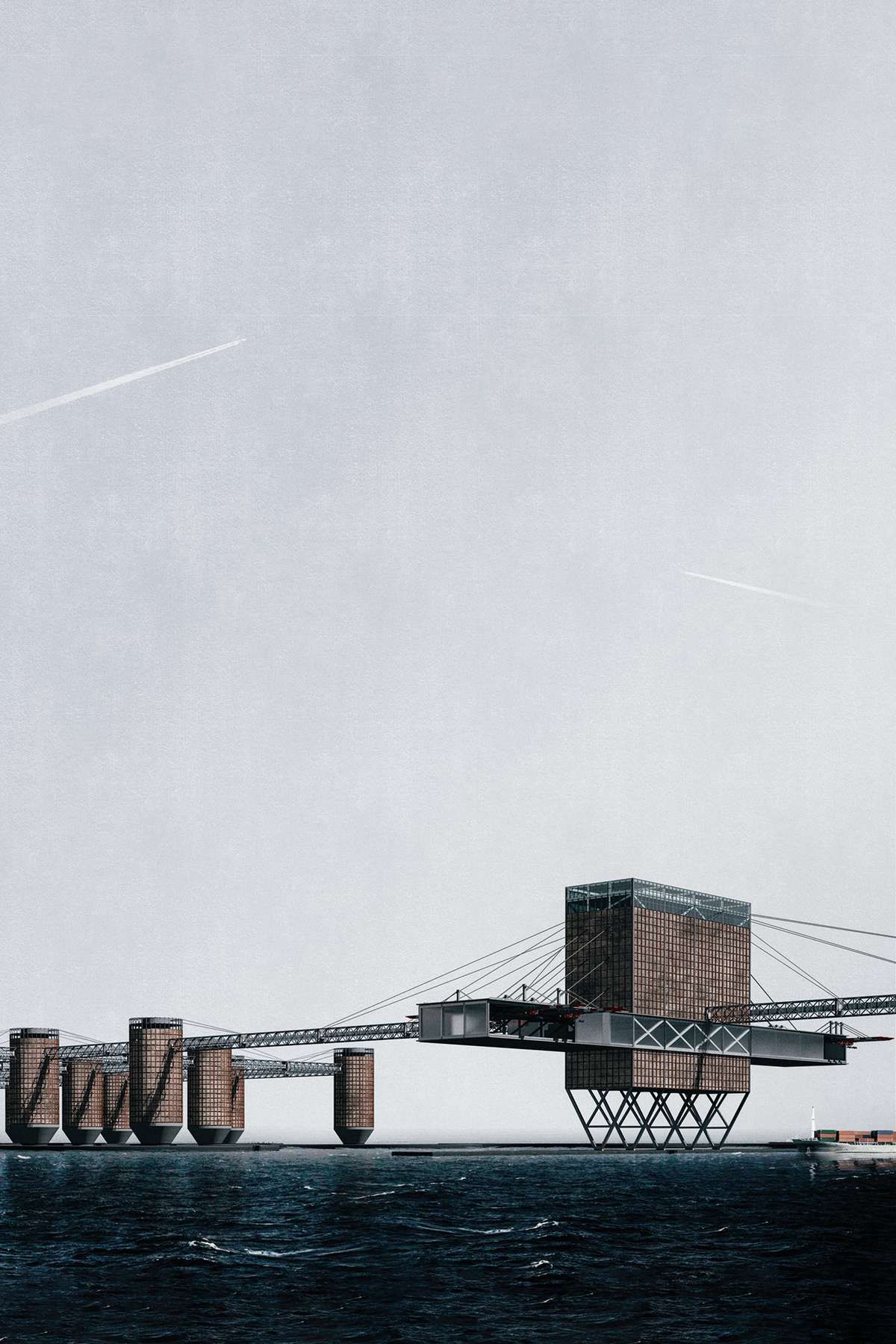
From a Boat. (e)Waste-scape
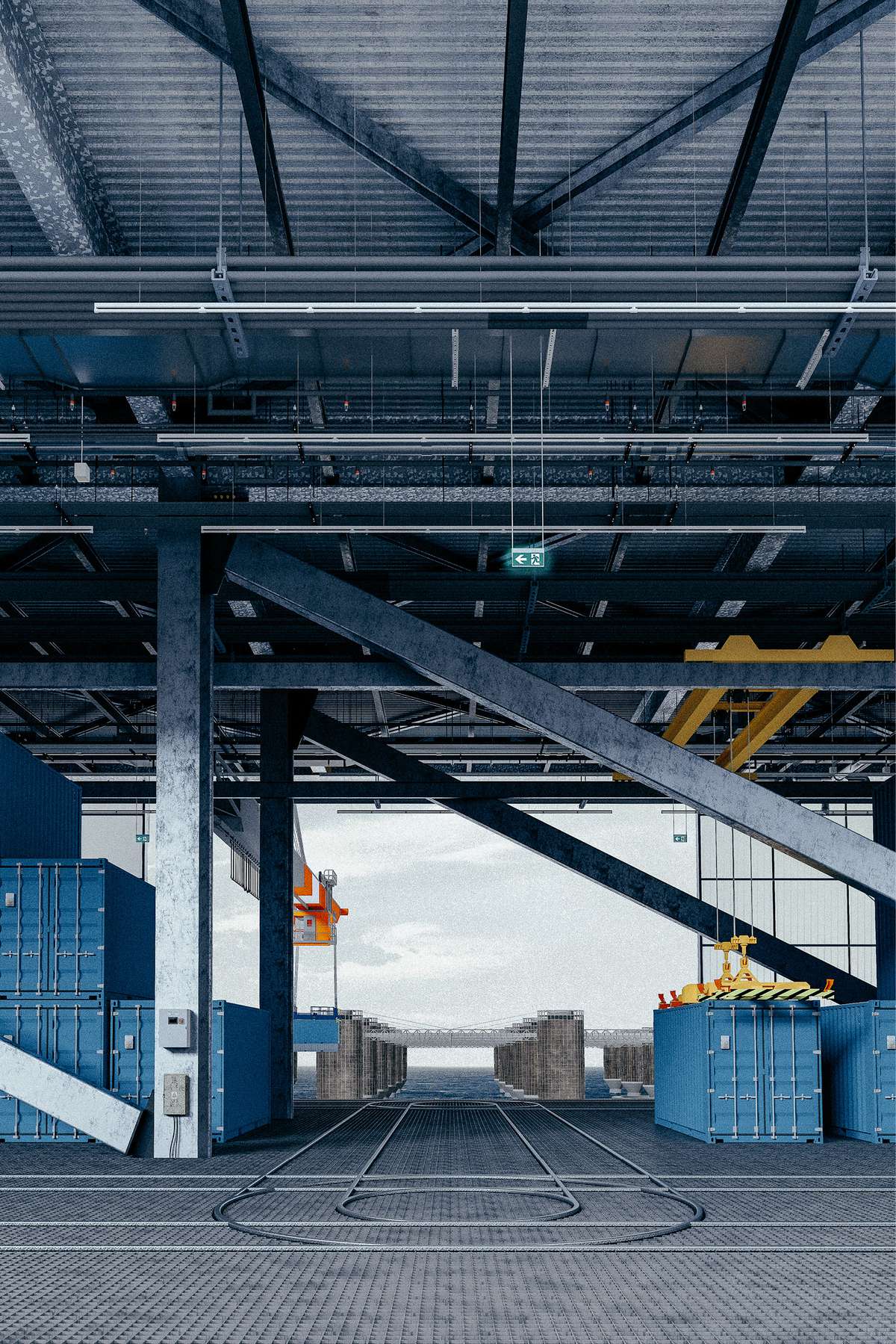
Automated Logistic. Interior View
The Zone of Disassembly
The Zone of Disassembly

- Systemic changes
This project is a critique toward the current policies regarding e-waste: incompetent formulation of recycling practises and lack of contemporary methodology results in the conscious exclusion of these so-called ore-streams results in huge economic and natural loses. It derives from the question of territory and formulates a spatial intervention which unveils the North Sea hidden e-flows. It is articulated via two agencies which establish an infrastructural threshold: the archipelago and the plant.
The waste archipelago resembles an artificial set of islands navigates between the territorial waste and material flows. It defines a flexible framework based on multipliable spatial syntax. Meanwhile, the plant manifests the territorial intervention by emphasising the physical metamorphosis of waste into matter. While the switch establishes a vital node handling the global streams of electronic dumping, the plant resembles a medium between global-local, human-machine, manual-automated.
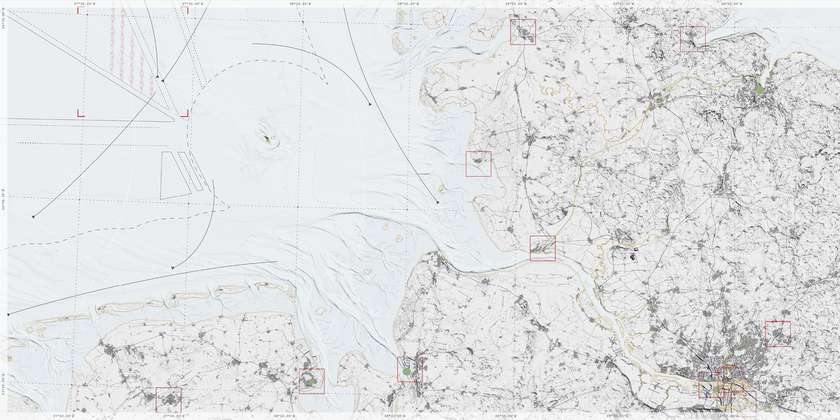
Occupation.Expansion.Densification. NS_German Bight Map
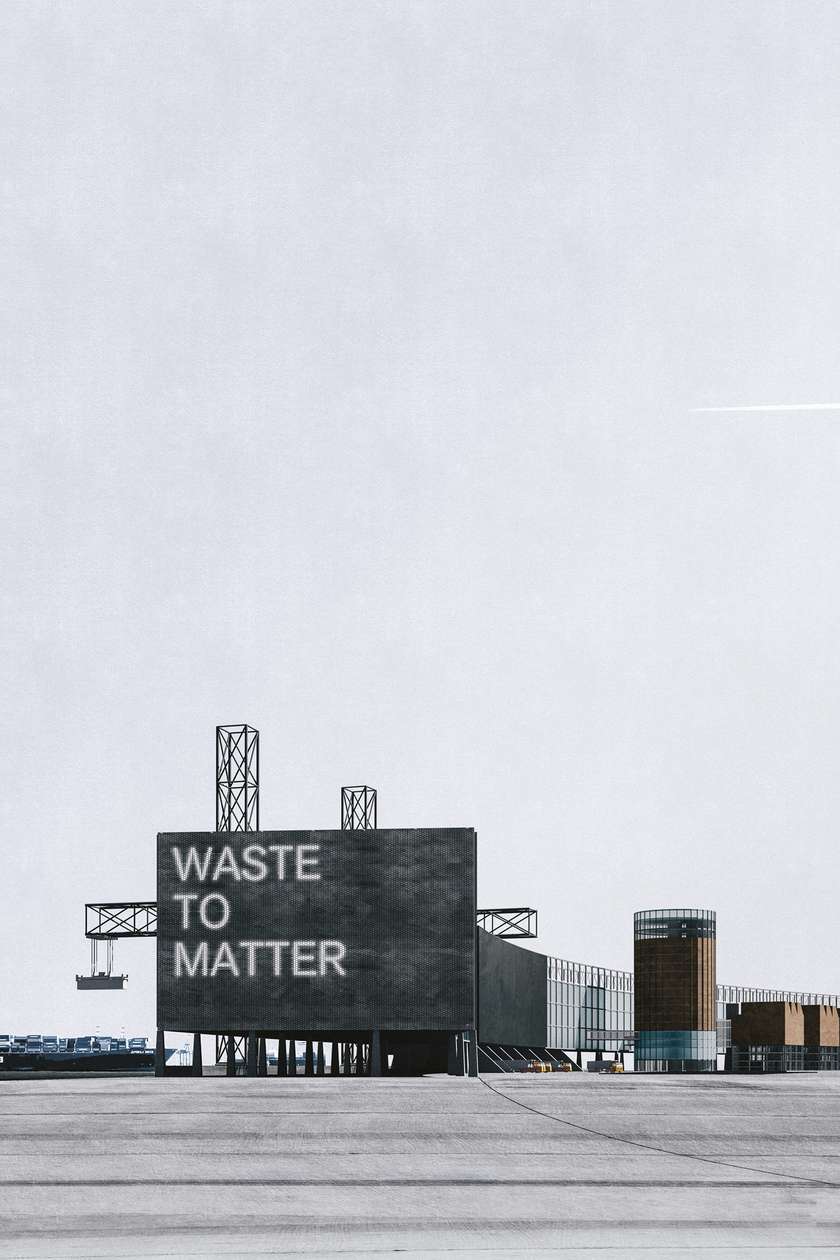
W2M. (e)Waste-plant
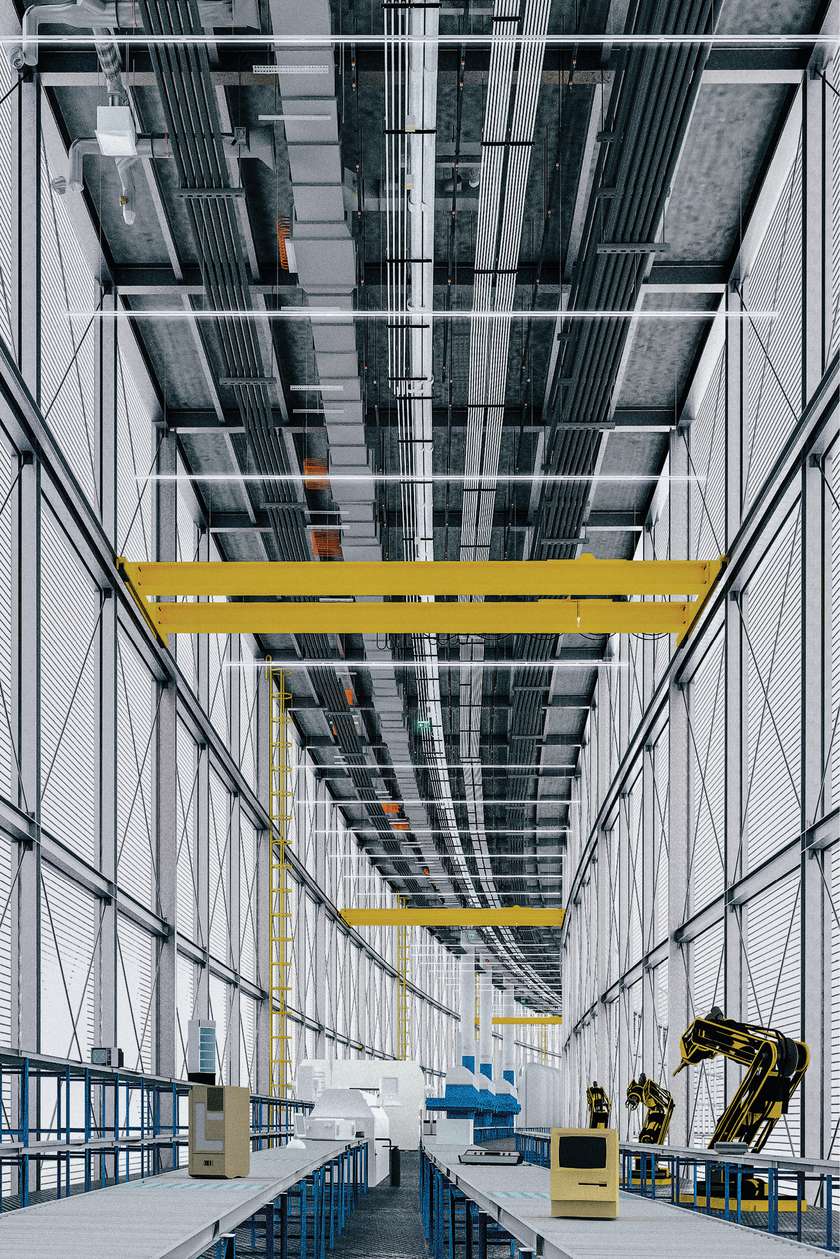
Automated Disassembly. Interior View
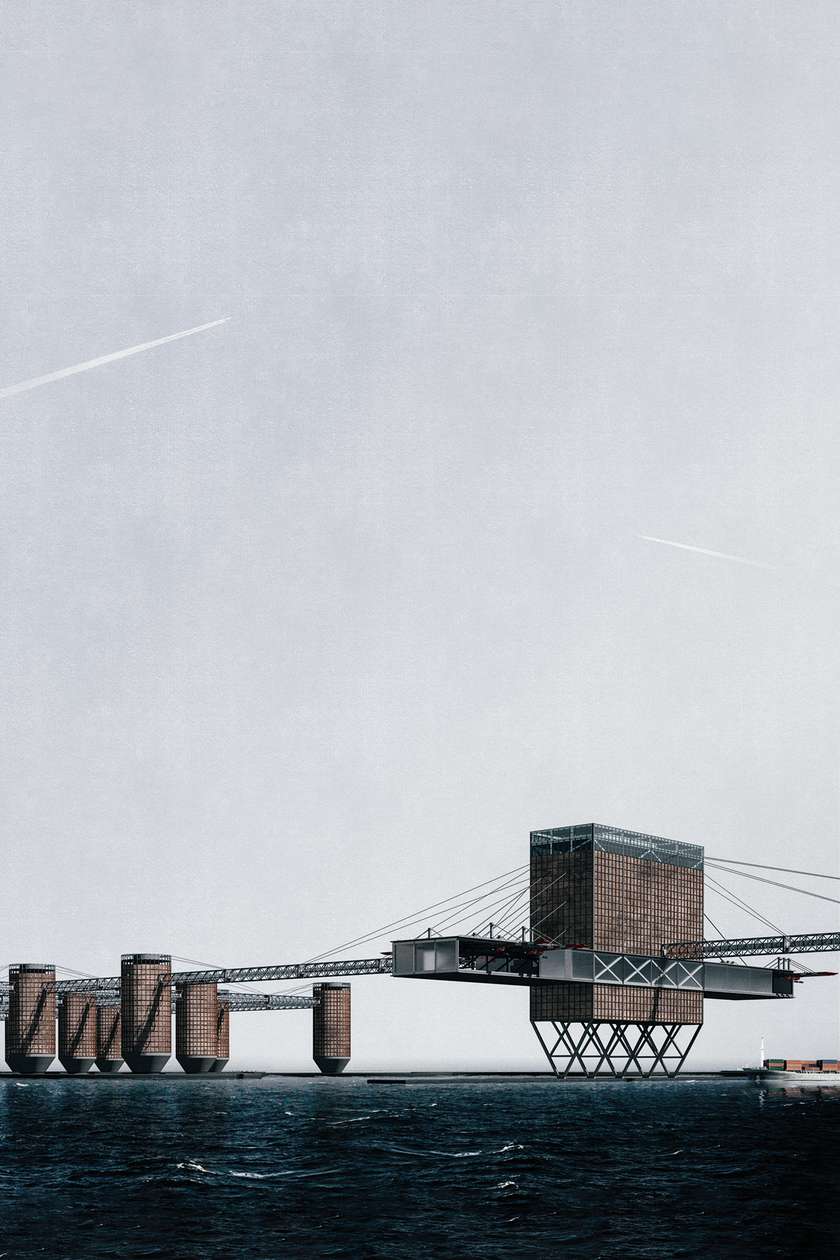
From a Boat. (e)Waste-scape
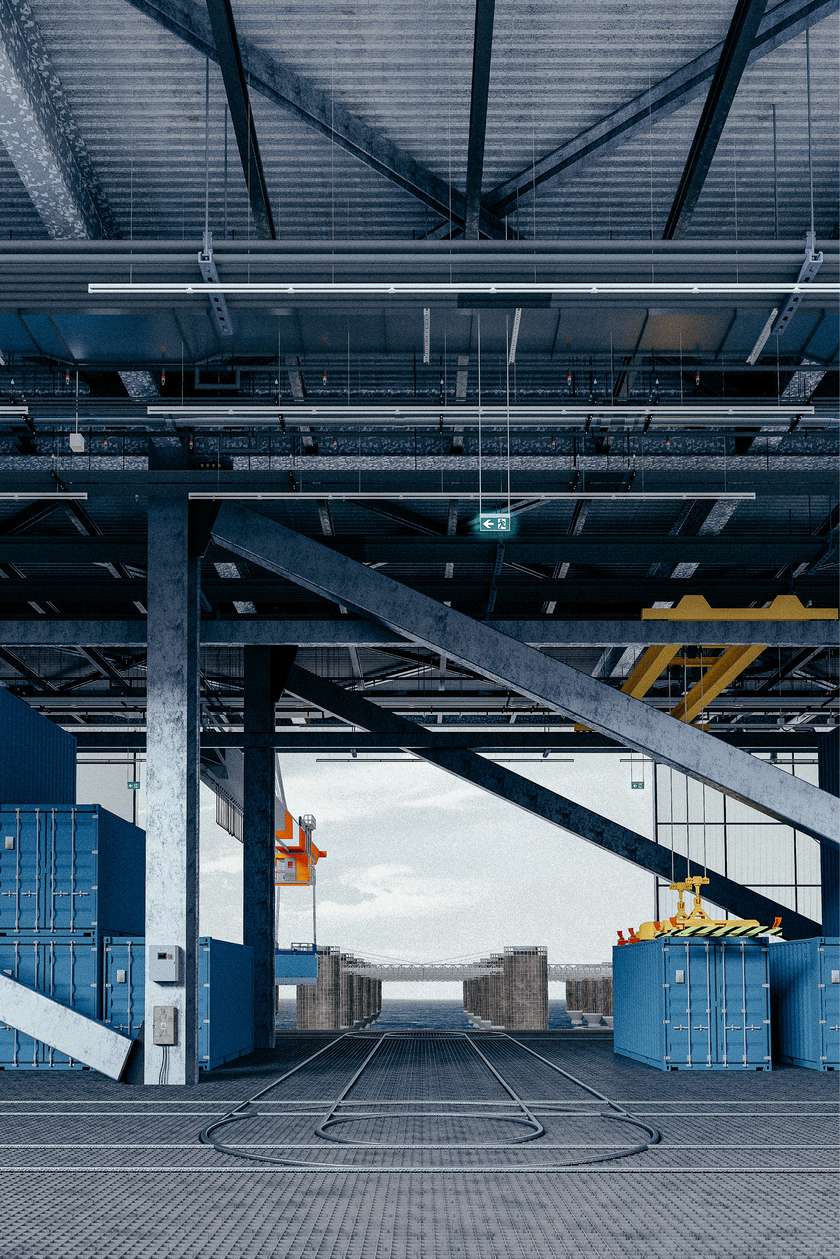
Automated Logistic. Interior View